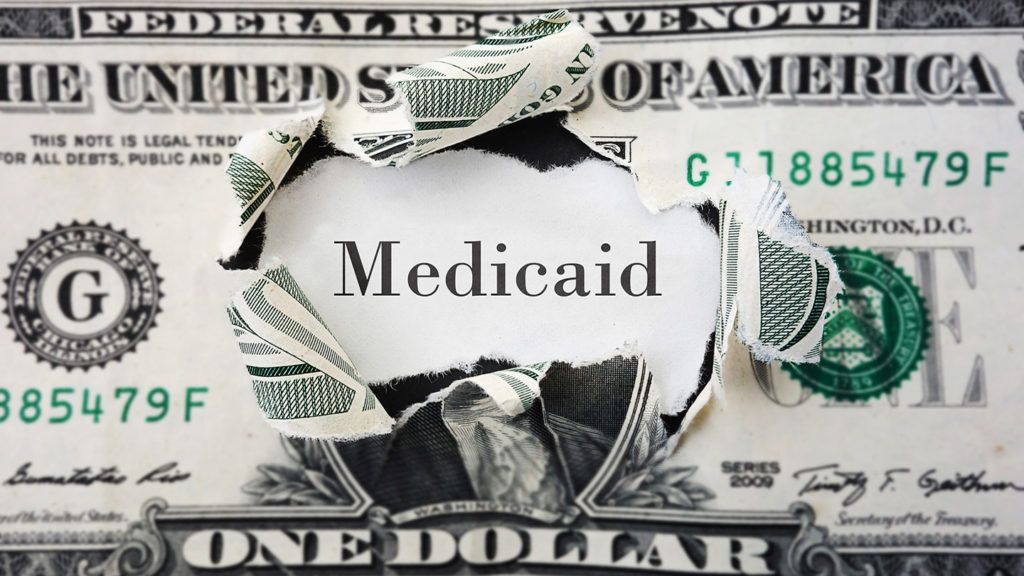
A proposed federal rule that would require providers of home- and community-based services to spend at least 80% of the Medicaid payments they receive for personal care, homemaker and home health aide services on compensation for direct care workers could diminish older adult access to services and hamper providers’ workforce retention efforts, 11 Republican senators told the administrator of the Centers for Medicare & Medicaid Services on Thursday.
“We have significant concerns that the proposal could and will likely harm access for seniors and people with disabilities, particularly in rural regions of the country, as well as harm workforce retention and provider networks,” the senators wrote CMS Administrator Chiquita Brooks-LaSure in a letter.
The missive was signed by Sens. Marsha Blackburn of Tennessee, Ted Budd of North Carolina, Shelley Moore Capito of West Virginia, Steve Daines of Montana, James Lankford of Oklahoma, Markwayne Mullin of Oklahoma, Tim Scott of South Carolina, Dan Sullivan of Alaska, John Thune of South Dakota, Thom Tillis of North Carolina and Roger Wicker of Mississippi.
CMS proposed the “Medicaid Program; Ensuring Access to Medicaid Services” rule in April. The proposal, which also would mandate quality measures and make other changes to the HCBS program, was sent to the White House Office of Management and Budget in January, and CMS has indicated that it plans to issue a final rule by April.
The 11 lawmakers recommended that CMS assess Medicaid data through collaborations with states and other stakeholders, as well as federal resources such as the Medicaid and CHIP Payment and Access Commission, and then work with MACPAC “to create a stakeholder and interagency evaluation of the impacts on payment, data and other outcomes of defining the direct care workforce.”
The senators said they came to their conclusions about the so-called Medicaid Access Rule after reviewing comments to the proposed rule as well as feedback from “states, state associations, payors, providers, MACPAC and other stakeholders.”
They stated that they have “mounting apprehension” about the proposal, “as states throughout the country have shared that mandating a threshold for these HCBS services would cause dire impacts for the provider system.” States maintain that beneficiary access to services, the senators said, “will be immediately impacted by this proposal,” with rural and small providers facing some of the greatest challenges. Further, according to the senators, the payment requirement “would create more Medicaid imbalance between states” because it “disregards variability in waivers and rates, and that states do not have the resources to incur the significant costs of this proposal, which would create shortfalls for state budgets.”
If the payment requirement were universally implemented, they said, an unintended consequence “could require states that currently pay higher wages and have stronger reimbursement rates to make deeper cuts in their programs to comply.”
And CMS, according to the lawmakers, has not provided data to support its 80% payment proposal.
“There has been no official data analysis of how this proposal would impact the Medicaid system, and payors and states alike have flagged that they expect it will harm provider networks and beneficiary access,” they added, putting the sentence in boldface to emphasize it.
States, the senators said, “have urged CMS not to move forward with the proposal and first fully assess the impact of the requirement on Medicaid costs and beneficiary access to care.”
Senior living concerns
Senior living industry leaders previously shared with the federal government their concerns that the proposal, if it becomes final, ultimately could lead to fewer jobs, stagnant pay for caregivers and a reduction in older adult access to HCBS — the exact opposite of what the government intends.
The American Seniors Housing Association, Argentum, LeadingAge and the National Center for Assisted Living were among the more than 2,000 groups and individuals submitting comments to CMS on the rule by a July 3 deadline.
Although the industry advocacy groups said they generally support the intentions behind the proposed rule and its provisions, as well as a living wage for direct care workers, a common theme among their comments was disagreement with the spending-related requirement.
The associations also told CMS that more data are needed before the rule is implemented, and they called on the agency to withdraw the proposed rule and work with the industry to accomplish its goals.
Between 18% and 20% of all assisted living residents receive Medicaid services under state HCBS programs and waivers, Argentum President and CEO James Balda said in his comments, but “CMS’s proposal is ambiguous, making it unclear whether and to what extent this policy would apply to assisted living or similar residential facilities providing HCBS under state Medicaid programs.”
But even if the proposal applies to assisted living, he said, without increased reimbursement, if providers are able to use only 20% of payments “to address all other expenses” except caregiver pay, then they will “either reduce HCBS services they are currently providing or cease participation in the Medicaid program altogether, which ultimately would have a negative impact on direct care workforce participation and Medicaid beneficiary access to care.”

